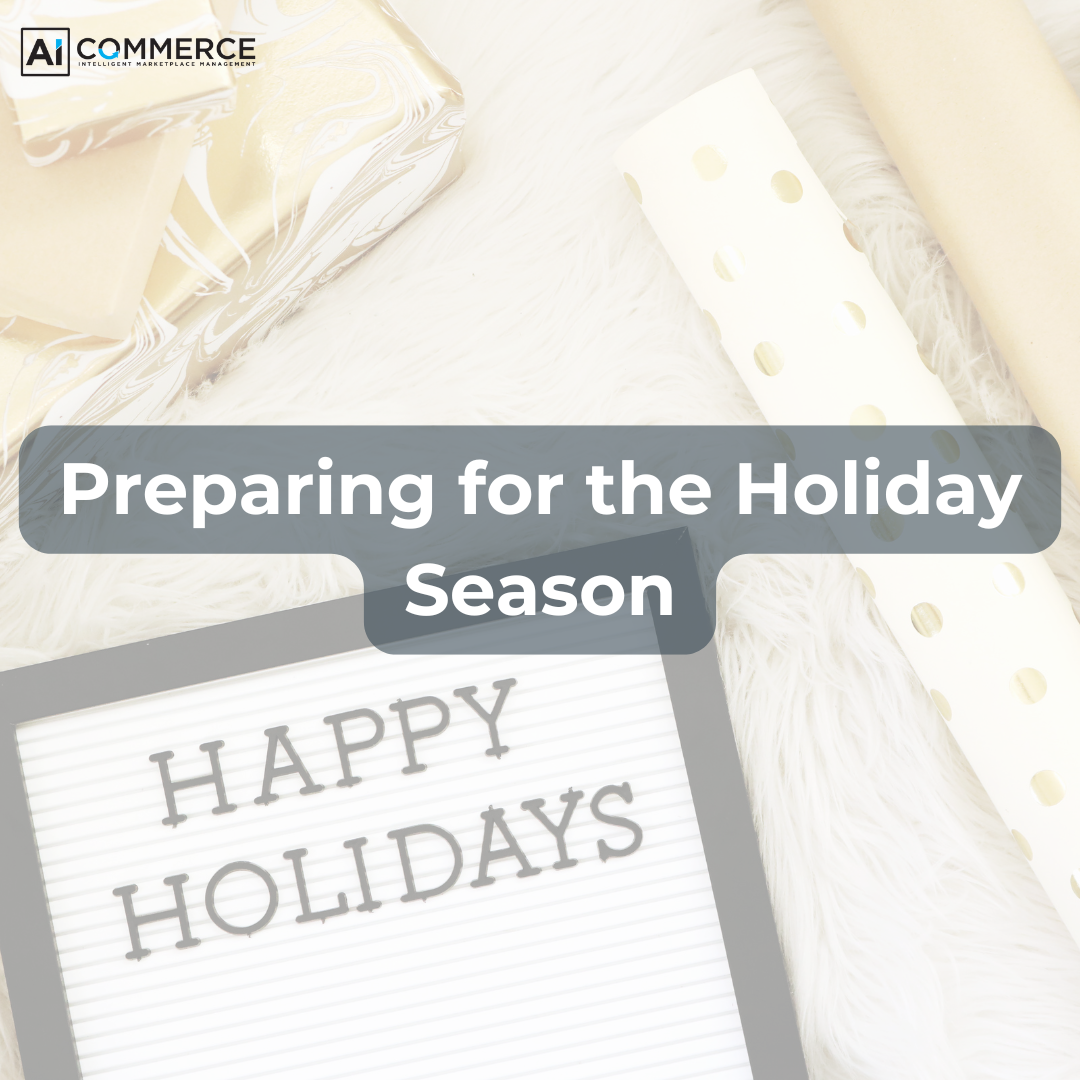An eCommerce Brand's 10-Step Checklist for Success This Holiday Season
The holiday season is the most crucial time of the year for eCommerce brands. With the potential for increased sales and heightened competition, it's essential to have a robust plan in place to ensure your brand stands out and thrives. This 10-step checklist will guide you through everything you need to do to maximize your success and capitalize on the holiday shopping frenzy.
- Evaluate and Optimize Your Website
- Review Website Performance: Before the holiday rush begins, assess your website's performance. Ensure that it loads quickly on both desktop and mobile devices. Slow-loading sites can lead to high bounce rates and lost sales. Use tools like Google PageSpeed Insights to analyze and improve your site’s performance.
- Optimize for Mobile: With an increasing number of shoppers using mobile devices, it's crucial that your site is mobile-friendly. Check that all elements, including navigation, product pages, and checkout processes, are optimized for mobile viewing.
- Simplify the Checkout Process: A complicated checkout process can result in cart abandonment. Streamline your checkout process by reducing the number of steps and offering multiple payment options. Consider implementing guest checkout to make the process as easy as possible for new customers.
- Enhance Your Product Listings
- Update Product Descriptions: Ensure that your product descriptions are detailed and highlight the benefits and features of each item. Use clear, high-quality images and, if possible, include videos showcasing the product in use.
- Implement Holiday-Themed Content: Incorporate holiday-themed content into your product listings to capture the festive spirit. This can include holiday-specific packaging, gift ideas, and special promotions.
- Optimize for Search Engines: Update your product titles and descriptions with relevant keywords that shoppers are likely to use during the holiday season. This will help improve your visibility in search engine results and attract more organic traffic.
- Develop a Strategic Marketing Plan
- Plan Holiday Campaigns: Develop a marketing strategy that includes email campaigns, social media promotions, and paid advertisements. Create a calendar that outlines key dates, such as Black Friday, Cyber Monday, and Christmas, and plan your promotions around these dates.
- Segment Your Audience: Tailor your marketing messages to different segments of your audience. Use data from past purchases and browsing behavior to create personalized offers and recommendations.
- Leverage Social Proof: Encourage satisfied customers to leave reviews and share their experiences on social media. Use these testimonials in your marketing materials to build trust and credibility.
- Prepare for Increased Traffic
- Scale Your Infrastructure: The holiday season can bring a surge in traffic to your site. Ensure your hosting provider can handle the increased load and consider using a content delivery network (CDN) to improve performance.
- Monitor Traffic Patterns: Use analytics tools to track traffic patterns and identify any potential issues. Be prepared to make adjustments to your site’s infrastructure if necessary.
- Implement a Robust Security System: With increased traffic, there is also a heightened risk of cyberattacks. Ensure your website has a strong security system in place, including SSL certificates and firewalls, to protect customer data and transactions.
- Optimize Your Inventory Management
- Forecast Demand: Analyze historical sales data to forecast demand for the holiday season. Consider factors such as trends, previous sales volumes, and any upcoming promotions.
- Stock Up on Popular Items: Ensure that you have sufficient inventory of your best-selling products. Running out of stock on popular items can lead to lost sales and disappointed customers.
- Implement an Efficient Fulfillment System: Review your fulfillment processes to ensure they are efficient and scalable. This includes everything from inventory management to packing and shipping. Consider partnering with third-party logistics providers if you need additional support.
- Offer Compelling Holiday Promotions
- Create Special Discounts: Design holiday-specific discounts and promotions to attract shoppers. This can include percentage-off deals, buy-one-get-one-free offers, and limited-time flash sales.
- Use Bundling Strategies: Bundle complementary products together at a discounted price. This not only increases the average order value but also makes gift-giving easier for your customers.
- Implement a Loyalty Program: Reward loyal customers with exclusive holiday offers and discounts. Consider offering bonus points or special gifts for purchases made during the holiday season.\
- Enhance Customer Service
- Extend Support Hours: Increase your customer service hours to accommodate the higher volume of inquiries and support requests during the holiday season. Ensure your team is well-trained and prepared to handle various issues efficiently.
- Provide Multiple Support Channels: Offer customer support through various channels, such as live chat, email, and phone. Make it easy for customers to reach out and get the help they need.
- Create a Holiday FAQ: Develop a comprehensive FAQ page that addresses common holiday-related questions, such as shipping deadlines, return policies, and gift-wrapping options.
- Implement Effective Shipping Strategies
- Clearly Communicate Shipping Deadlines: Clearly communicate shipping deadlines and cut-off dates to ensure customers receive their orders on time. Update your website and marketing materials with this information.
- Offer Free or Discounted Shipping: Consider offering free or discounted shipping options to encourage purchases. Free shipping is often a major incentive for online shoppers, especially during the holiday season.
- Provide Order Tracking: Offer order tracking so customers can monitor the status of their shipments. This enhances the shopping experience and reduces customer anxiety about order delivery.
- Utilize Data and Analytics
- Track Key Metrics: Monitor key performance indicators (KPIs) such as website traffic, conversion rates, and average order value. Use this data to make informed decisions and adjust your strategies as needed.
- Analyze Customer Behavior: Examine customer behavior to understand purchasing patterns and preferences. This can help you refine your marketing strategies and tailor your offerings to meet customer needs.
- Measure the Success of Campaigns: Evaluate the effectiveness of your holiday marketing campaigns. Track metrics such as engagement rates, click-through rates, and return on investment (ROI) to determine what worked and what needs improvement.
- Prepare for Post-Holiday Follow-Up
- Send Thank You Emails: Send personalized thank you emails to customers who made purchases during the holiday season. Show appreciation for their business and encourage them to return.
- Request Feedback: Ask customers for feedback on their shopping experience. Use surveys or follow-up emails to gather insights and identify areas for improvement.
- Plan for Returns and Exchanges: Be prepared for an increase in returns and exchanges after the holiday season. Ensure your return process is clear and efficient, and communicate your return policy to customers.
The holiday season presents a significant opportunity for eCommerce brands to drive sales and build customer loyalty. By following this 10-step checklist, you can ensure that your brand is well-prepared to handle the increased traffic, deliver exceptional customer experiences, and maximize your success during this critical time of the year.
Remember, preparation is key. By taking proactive steps and implementing these strategies, you'll be better equipped to navigate the holiday rush and achieve your business goals. Here's to a successful and profitable holiday season!
More About aiCommerce
aiCommerce is a global digital marketing agency with a focus on retail and eCommerce marketplaces. aiCommerce can help your brand grow across eCommerce channels to gain brand awareness, visibility, and increase sales, all backed by our 90-day guarantee. Now is the perfect time to utilize our eCommerce experts to help grow your business. Click the button below to learn more!




